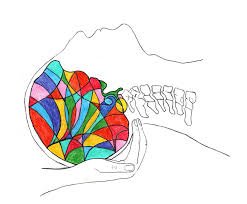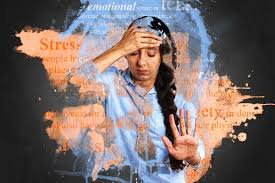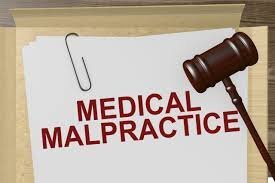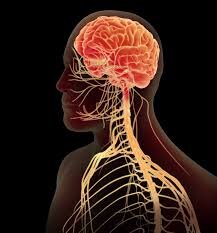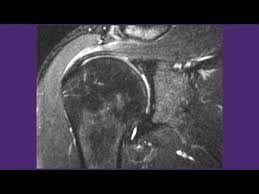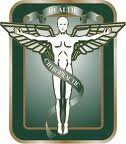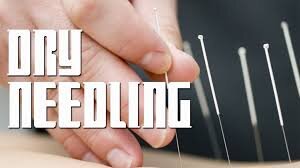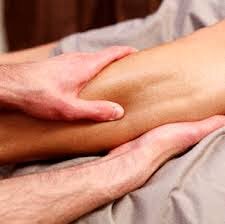The Impact of ACE's on Health Outcomes: Trauma Informed Care in Chiropractic
Trauma informed care (TIC) is a recommended approach to healthcare delivery across professions, especially when a trauma history is suspected. This program aims to introduce TIC concepts as they may apply to chiropractic care for adults with a history of Adverse Childhood Experiences (ACEs). Prior trauma can lessen trust, alter perceptions of physical touch, and hands-on examinations and chiropractic treatments may trigger stress responses.
ACEs can facilitate chronic stress. Chronic stress leads to an increase in stress hormones (adrenocorticoids), held in a dynamic equilibrium by allostasis . Chronic stress generates allostatic load, straining body systems and causing physiological change.
All of the effects of chiropractic care on this population are well documented throughout the literature and through studies. Join us to learn how Chiropractic can help these patients and how you as a Chiropractor can have a major impact on their ability to function.
Avoiding Malpractice: The prevention of Medical Errors & Risk Management
Dr. Hayes will discuss 18 Office Procedures Protection Strategies and help you to develop Proper Office Procedures. He will review what is covered in malpractice insurance and how new laws pertain to you and your practice.
You will leave this seminar with forms and materials to use to keep your practice compliant and help protect yourself, your staff and your practice.
The Impact of ACE's on Health Outcomes: Trauma Informed Care in Chiropractic
Trauma informed care (TIC) is a recommended approach to healthcare delivery across professions, especially when a trauma history is suspected. This program aims to introduce TIC concepts as they may apply to chiropractic care for adults with a history of Adverse Childhood Experiences (ACEs). Prior trauma can lessen trust, alter perceptions of physical touch, and hands-on examinations and chiropractic treatments may trigger stress responses.
ACEs can facilitate chronic stress. Chronic stress leads to an increase in stress hormones (adrenocorticoids), held in a dynamic equilibrium by allostasis . Chronic stress generates allostatic load, straining body systems and causing physiological change.
All of the effects of chiropractic care on this population are well documented throughout the literature and through studies. Join us to learn how Chiropractic can help these patients and how you as a Chiropractor can have a major impact on their ability to function.
The Impact of ACE's on Health Outcomes and Cervical Radiculopathy Treatments: Trauma Informed Care in Chiropractic
Trauma informed care (TIC) is a recommended approach to healthcare delivery across professions, especially when a trauma history is suspected. This program aims to introduce TIC concepts as they may apply to chiropractic care for adults with a history of Adverse Childhood Experiences (ACEs). Prior trauma can lessen trust, alter perceptions of physical touch, and hands-on examinations and chiropractic treatments may trigger stress responses.
ACEs can facilitate chronic stress. Chronic stress leads to an increase in stress hormones (adrenocorticoids), held in a dynamic equilibrium by allostasis . Chronic stress generates allostatic load, straining body systems and causing physiological change.
All of the effects of chiropractic care on this population are well documented throughout the literature and through studies. Join us to learn how Chiropractic can help these patients and how you as a Chiropractor can have a major impact on their ability to function.
The Impact of ACE's on Health Outcomes: Trauma Informed Care in Chiropractic
Trauma informed care (TIC) is a recommended approach to healthcare delivery across professions, especially when a trauma history is suspected. This program aims to introduce TIC concepts as they may apply to chiropractic care for adults with a history of Adverse Childhood Experiences (ACEs). Prior trauma can lessen trust, alter perceptions of physical touch, and hands-on examinations and chiropractic treatments may trigger stress responses.
ACEs can facilitate chronic stress. Chronic stress leads to an increase in stress hormones (adrenocorticoids), held in a dynamic equilibrium by allostasis . Chronic stress generates allostatic load, straining body systems and causing physiological change.
All of the effects of chiropractic care on this population are well documented throughout the literature and through studies. Join us to learn how Chiropractic can help these patients and how you as a Chiropractor can have a major impact on their ability to function.
Neurology & Vagus Nerve Stimulation
This seminar will enable the practitioner to determine the misalignment associated with specific neurological dysfunctions.
Dr. Humberg will present the analysis portion of this seminar with a very specific and accurate method of locating not only the site of the neurological irritation (compression) but also the misalignment associated with that neurological dysfunction. We will look at muscular and visceral components, diagnosis, signs, symptoms plus you will learn manual and electrical ways of stimulating the vagus nerve.
You’ll learn more about treating such issues as IBS, Colitis, GI issues and more!
Important Common Concerns You See On Imaging - Dr. Alicia Yochum
In this seminar, Dr. Alicia Yochum will cover a systematic approach to evaluating plain films to better help you in your daily practice. She will also review a wide range of pathology such as sports injuries, arthritis, tumors and infection. The classification and terminology used for disc herniations along with the biomechanics of the disc will be covered. Join us for this exciting new seminar!
Non-Surgical Spinal Decompression
Dr. Henry will show you how to perform spinal decompression, when and when not to use this method, and give you the treatment protocols you need to successfully treat these patients.
In this seminar, you will learn:
What is spinal decompression and the difference between this and traction
Indications & Contraindications for treatment
Treatment Protocols
What to treat and how to treat using spinal decompression
Multi-modal treatment approach
Comparisons to alternative treatments
Research & Studies
Risk Management involved
How to start using spinal decompression in your practice
Chiropractic Spring Extravaganza
Chiropractic Extravaganza - 24 CE hours
This weekend is a potpourri of educational opportunities for the DC! You may attend as many or as few classes and hours as you wish! Pick and choose what suits you. You will get the number of hours you attend.
Classes include:
Thompson Technique with Dr. Rob Jackson
Evaluation & Treatment for Migraines Using Functional Chiropractic Approach
Incorporating Functional Medicine in your Practice
New Laser Technology
New Imaging Technology
Important Common Concerns You See On Imaging - Dr. Alicia Yochum
In this brand-new seminar, Dr. Alicia Yochum will cover a systematic approach to evaluating plain films to better help you in your daily practice. She will also review a wide range of pathology such as sports injuries, arthritis, tumors and infection. The classification and terminology used for disc herniations along with the biomechanics of the disc will be covered. Join us for this exciting new seminar!
Dry Needling Program - 50 hours
This course will cover the safety of dry needling and the difference between dry needling and acupuncture, as well as ethical considerations for performing dry needling. We will discuss pain theory and the specifics of how a dry needle works.
Safety concerns as well as proper needle use and disposal will be emphasized.
Demonstrations of safe and appropriate handling of needles, clean needle technique and the OSHA needle safety standard will result in the participant clearly understanding dry needling and when and when it should not be used. The risks and potential complications of dry needling will be studied as well as how to identify potential adverse effects and how to manage emergencies.
Dry Needling Program - 50 hours
This course will cover the safety of dry needling and the difference between dry needling and acupuncture, as well as ethical considerations for performing dry needling. We will discuss pain theory and the specifics of how a dry needle works.
Safety concerns as well as proper needle use and disposal will be emphasized.
Demonstrations of safe and appropriate handling of needles, clean needle technique and the OSHA needle safety standard will result in the participant clearly understanding dry needling and when and when it should not be used. The risks and potential complications of dry needling will be studied as well as how to identify potential adverse effects and how to manage emergencies.


